Cooking Art – a conversation with Ottokaji & Melle Aussems
Frank Mohr-alumni Melle Aussems and Ottokaji just finished their Master studies. Our new Northerly correspondent Michiel Teeuw talked with them about working, bird droppings, (in)stability, potatoes and ambiguity.
Michiel Teeuw: Both of you developed a varied body of work and practice during your study at Frank Mohr, and although the working methods and outcomes are very different, you both describe the whole as a cuisine. What do you mean with this?
Melle Aussems: For me, cooking is obviously something that I like to do, but also something that helps me find my material. It started out as something enjoyable, but also as something to financially support myself. I’ve been working for ten years, and there are a lot of similarities between cooking and my way of working in the studio.
I found that, in my practice, I lacked a personal approach. I found this in cooking, and used the side job as a metaphor, with a focus on the financial way.
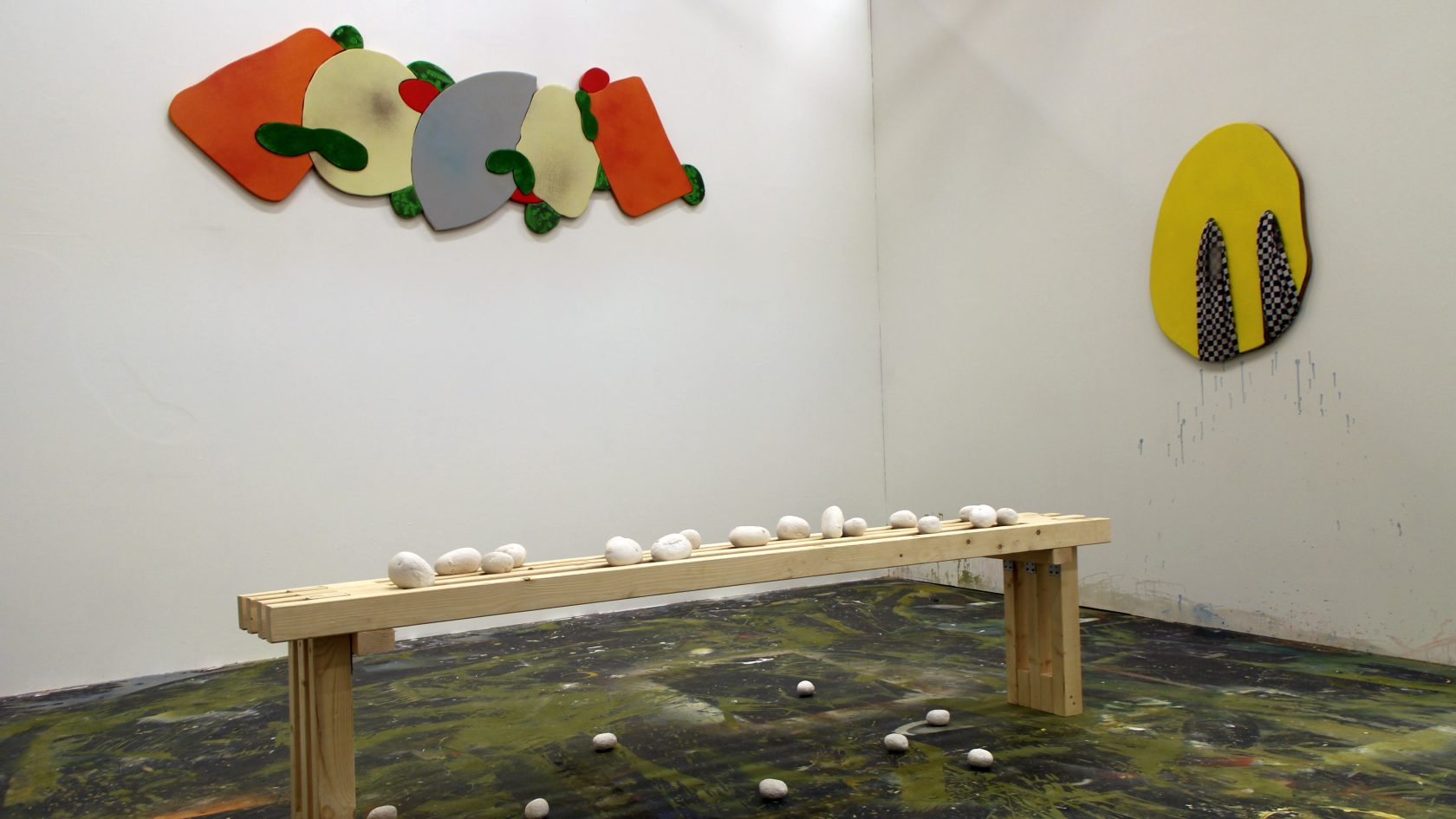
Isn’t being an artist also a side-job?
MA: I can explain it very simply. If I would only work in the studio and not in the kitchen, I would be very satisfied. If I would only work in the kitchen, and not in the studio, I wouldn’t be very happy. But a lot of people who work in the kitchen are very very interesting people, students or people who graduated in things that don’t get you a job. I also talk to coworkers about my practice. My supervisor has this joke.
He says: “do we need this? No, we don’t need it. We can give it to Melle?””
MT: “And Ottokaji, how is it for you, moving from Korea to the Netherlands, two countries with completely different cuisines?”
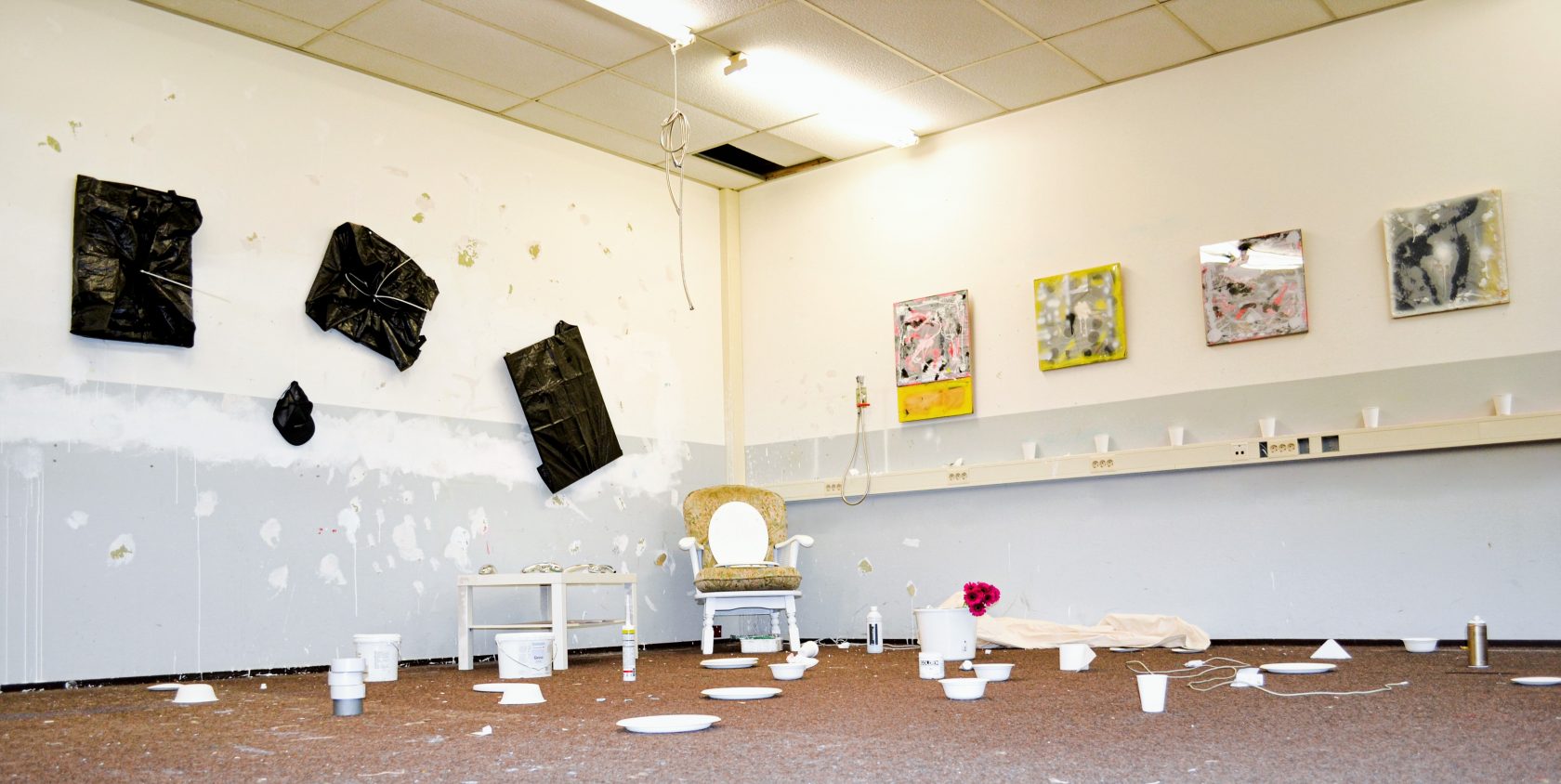
Ottokaji: Back in Korea, I was always thinking about what I had to eat, because there are a lot of options. In the Netherlands, I’ve lost a lot of options. Here I can only eat bread, not even frozen pizza is possible because I have no oven. In the beginning, I used to only buy instant ramyun. Now I know how to cook, I practiced it here. It still doesn’t help – it’s not the same quality that I enjoyed in Korea. Apart from that, sharing food is my culture. I still cannot be individualistic enough in a restaurant. In Korea, when you’re going to a restaurant together, I order pasta and the others order something different- to share the food. Even if I go to a restaurant with friends here, I share my own plate. It never can be the same.” So to say, physically I’m here in the Netherlands, but my inner mentality keeps travelling between Nederland and Korea. I want to be free from it, maybe it will take some time.
I try not to be Korean because culture is almost like an obsession that I cannot be free from- even my mentality. Art, for me, is the same. I don’t like the institutions and the lots of things in there. But I want to be there. There is no ultimate autonomy possible. Maybe alternative autonomy exists.
When I make something, I imagine something I can’t achieve in reality. But when I share it as art, it also becomes certain. Physical existence is visible and this visibility is quantified in reality. I’m buddhistic: I always try to be under the control to be free from it. Going towards what I don’t have.
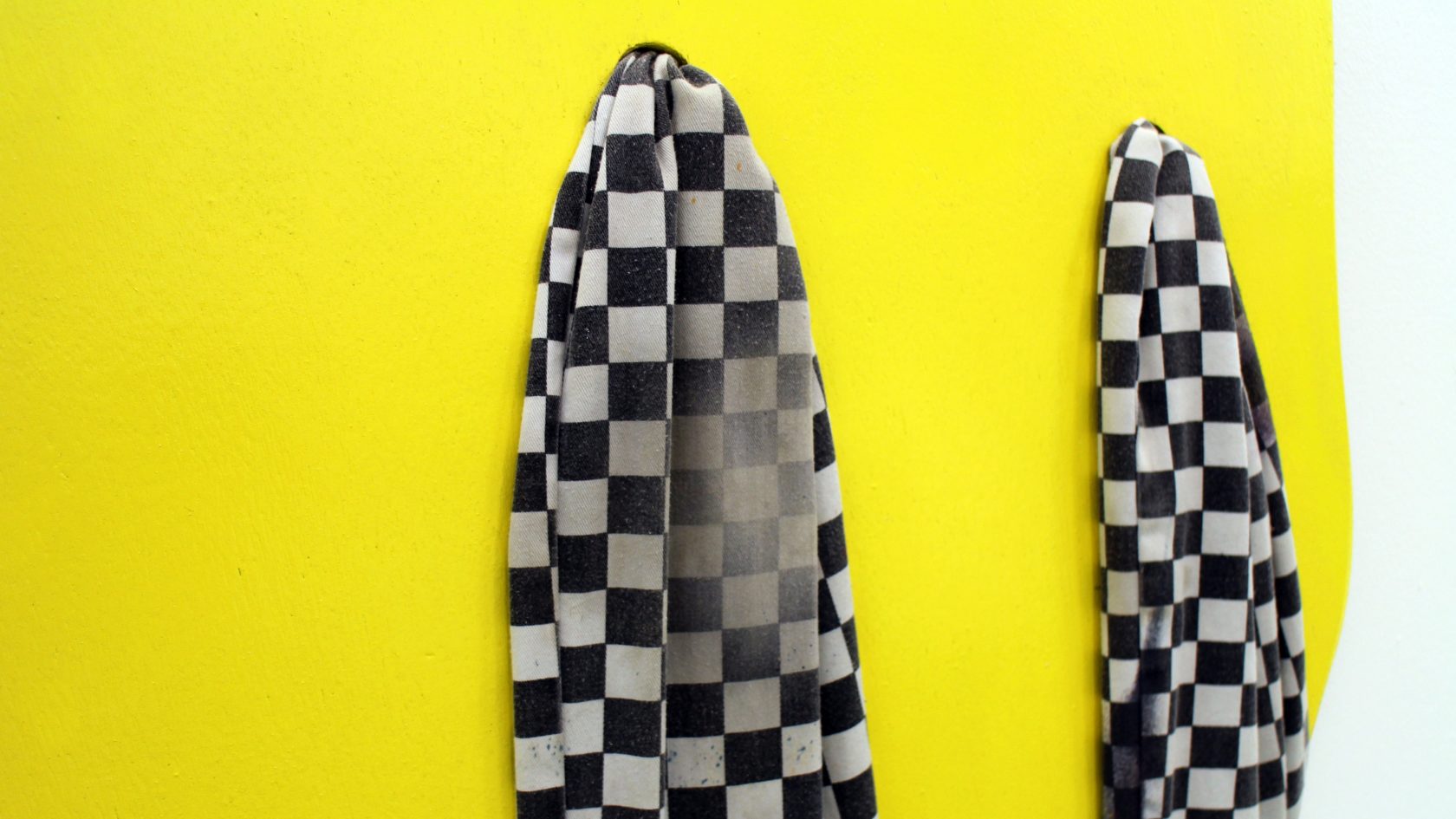
This going towards what you can’t have, was this also for you the act of moving towards the Netherlands, where you could appreciate the Korean cuisine because it “became” abnormal?
O: If you put a word with the norm, then you create opposites. That’s why I don’t like language. It seems very easy and logical to make a line between two different dots and make these divides.
This world is filled with problems, 99 problems always. Korea is fucked up in a way, it’s a super competitive society and the social anxiety is super intense. It’s incomparable to any other country. I don’t want to be smart, and have the intense competition of the creator. That’s why I want to have low entropy, like a breeze.
I had a background in graphic design, and worked a little bit in the professional baseball team as an intern designer. The designer is just sitting behind a computer, and not being an athlete. That’s not what I wanted. I want to be physically active. I had a good impression about the tendency of dutch paintings. Mixture of loose mind with productivity. Apart from that, it seems like a universal dilemma, that only your friends or art related people are coming to shows, and enjoy arts. I expected something different in the Netherlands. I make art for all the people but it seems like just my hope.
MA: For the art scene as it is, there’s a lot of this sense of elitism, not something I completely disagree on. I’m not fully standing behind this opinion, but you need at least some form of trained eye to see art. If you ask a bypasser on the street, to visit a gallery, let’s say Nam June Paik, they would miss out a lot because of their lack of knowledge. They might not know about the intention of the artist.
Do you think that too much knowledge can make you miss out on something?
MA: Someone might make a big blue monochrome, but not know who Yves Klein is. Then you can say that he should know who Yves Klein is, or I should know who Yves Klein is. For me, not to sound too elitist, a little knowledge is preferable.
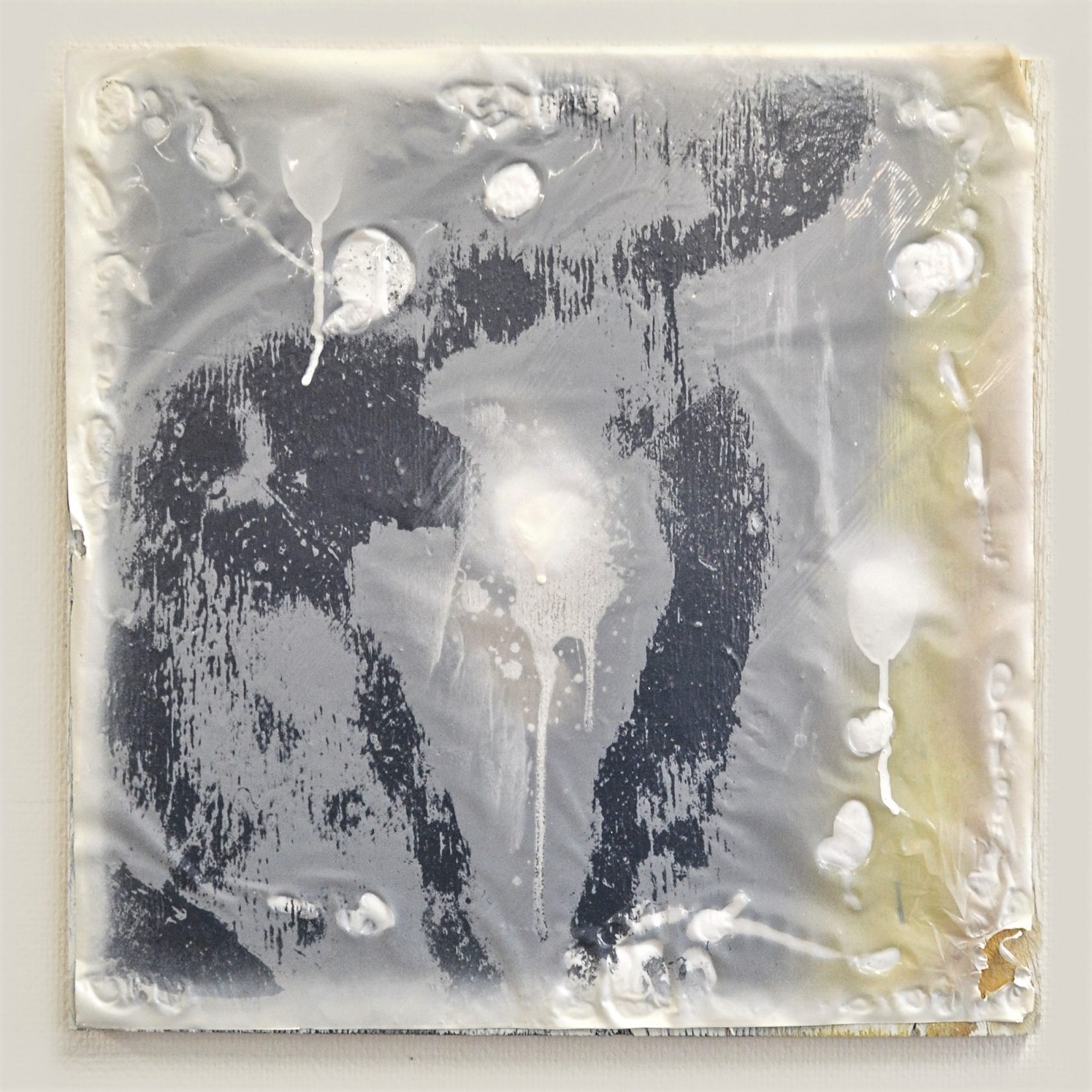
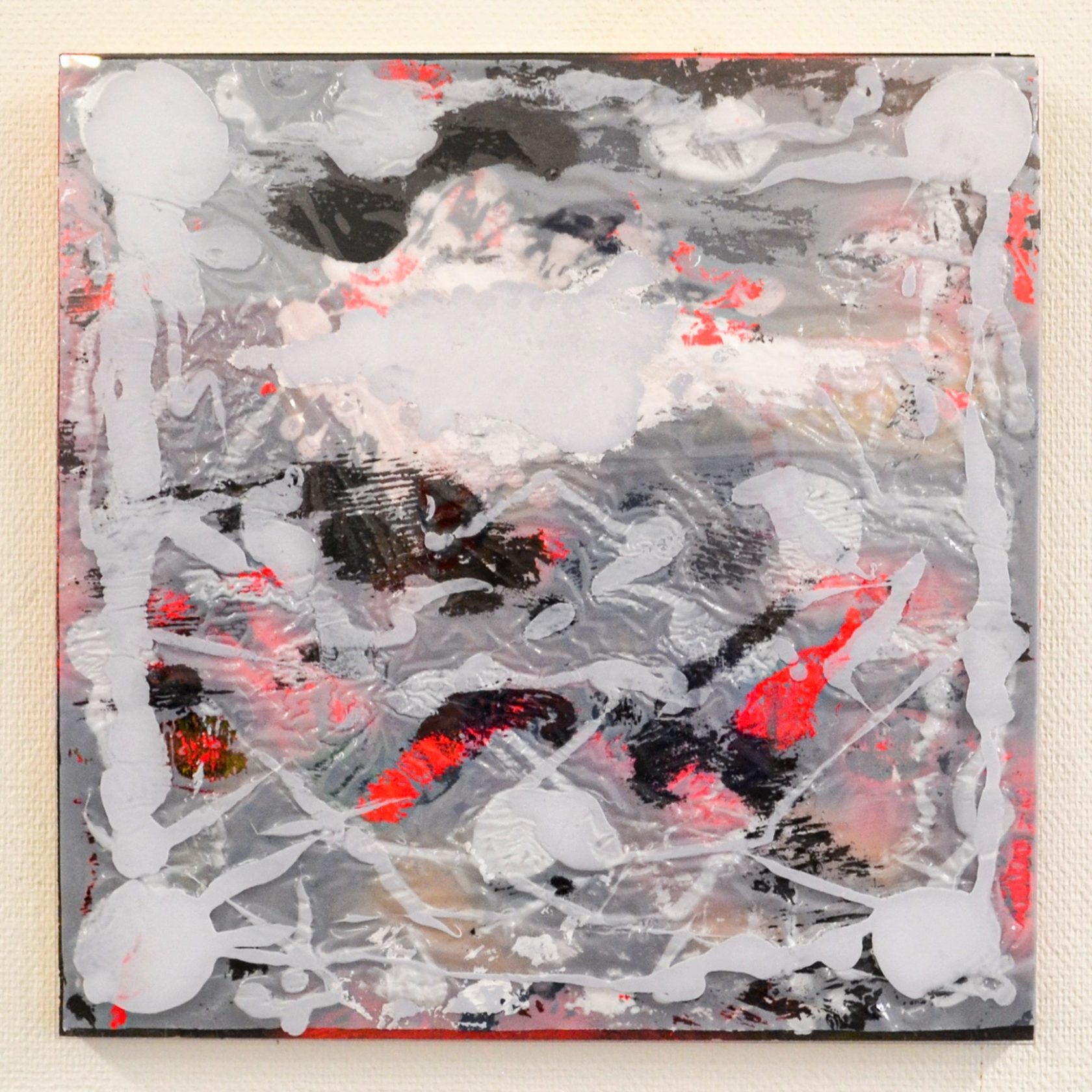
Ottokaji, I found the following text in Melle’s text Yours Truly. He seems to project a similar idea of autonomy: how do you relate to this?
I realized that the whole discussion about what painting ‘should’ or ‘could’ be was not the only concept present in my work. It was part of a bigger discussion: The concept of autonomy, or the lack of it. Can a table be used in a painting and how do its properties change? Can an object that was used or made for a specific purpose change into an object of autonomy?
Melle Aussems, Yours Truly
O: I become bird droppings. I become pigments. I become spray can. I am becoming something different; not myself. I am dancing on the surface. I become that. I can not be a pigment. I can not be a bird droppings. and… I can have the freedom from there, without having a fixed perspective. It doesn’t mean that I do not have an opinion or politicality.
I cannot become autonomous. I am in a society. It has to be for the people. If it’s only for myself, that doesn’t make sense at all. I really think that being autonomous, and being happy, has nothing to do with politicality. I am pretty much like Lao Tse, I don’t see others as something I can change. They’re born like that. I do not be sharp, I rather be a round pebble. Why would I categorise and analyse others which I can’t be?
Also, I’m from Korea, which has a lot of labelling. Are you a chinese friendly person politically? Are you a Japanese friendly person politically? Are you an American friendly person politically? I do not live in the past. Who made that border line? That was also humans, not aliens.
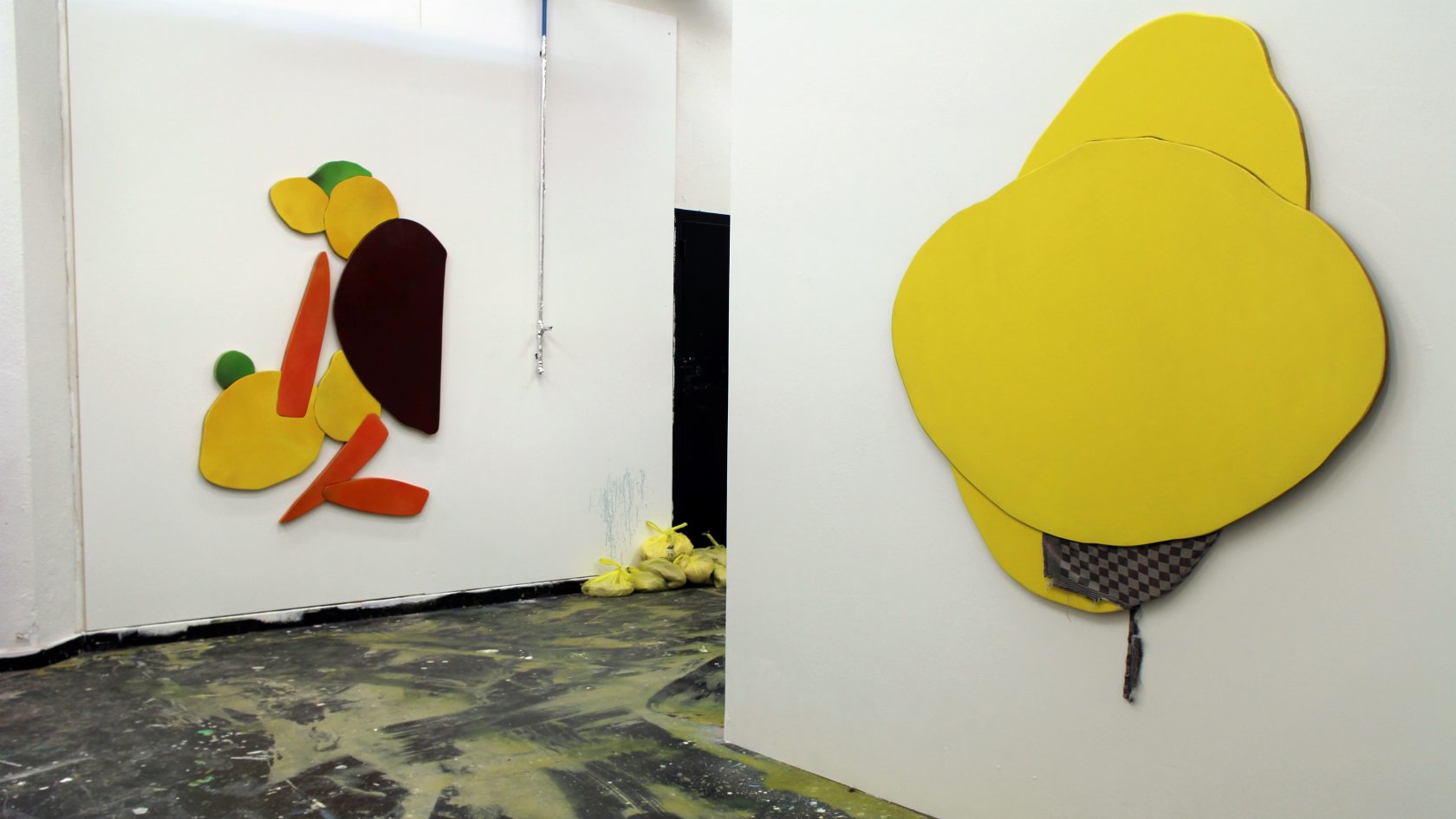
A kingdom isn’t something wrong, a king can be wrong. A dictator can be wrong, not the dictatorship. Democracy can always be powerful, and capitalism is successful because it fits in human nature. People are brutal. Many people want to manage their lives under control, with money. If you have it, you can control your life better. The triangle of the prey is just nature I think, many people are suffering in this sense.
Based on my military service, this changed me a lot. The situation isn’t important, the mindset is more important. I can be someone without my ego. In the beginning of the camp, they don’t call you by your name, but by your number. I was 128. It was the first time that someone called me a number, it felt so weird. Surprisingly, McDonalds adapted it nowadays. Like I had no place and connection to society. Afterwards I got used to it, and lived as a person. I can manage it and go through. It can be hard and painful, but I see it as a practice. I can be a better person. I think people have lots of potential to be different. Riding a cycle was something to me. I never cycled. I had to, living in the Netherlands. Otherwise, my routes are being restricted.
In physicality, you need certainty, to have clearness. But in the imagination, it doesn’t have to be like this, it can be more ambiguous.
When reading your writings, and looking at your works, I found a lot of humor. Where does this come from?
MA: Humor entered my work at the end of my bachelor. Being really serious is not a productive way of making anything. I like to laugh and make jokes. When I added humor, art became more fun. It became a more and more important part.
I like the difference between trying to make a joke and succeeding in conveying a joke.
I think it gives a quality to the work and process.
O: I think it’s a generational thing. Everyday we see the media impact. In daily life, I face many images way faster. Compared to the past, we think less. We don’t think slowly, we don’t take the time and enjoy solemnis of painting.. It’s quick like instagram. People function in this way. I want to be serious but if I’m serious, people don’t give a fuck. People don’t want to enjoy the depression of the artist, we are not that generous anymore. Art has to reflect the way of living of people. I try to adapt my style as well. We grow up with games, I get sick of it easily, I want something new, I want something new, I get bored. I know there is something deep, but it is easily getting boring. I’m challenging it with my production to overcome this defect of painting.
I can’t do it because of the price, but I want to change my shoes as often as possible. I’m spoiled in that sense. For the young artists, they can also be sick of their practice easily.
Art is increasingly being viewed as work, and a critical discourse around the entreprecariat, and the artist without security, is growing. Do you think there is this cultural fetish of the artist as a borderless freelancer?
MA: It’s a fact that the artist is very flexible. We are nomadic. We do residencies. Uncertainty is a certainty, there is no stability in our line of field. I tend to look for a lot of stability, which is very uncommon for artists. I think everybody wants to have a form of control over their life. We tend to not have that luxury very often, just for practical reasons. You work in a line of field that doesn’t give you a stable income. I think, that a bit of instability in your life makes for better work; this is purely hypothetical of course. The art changes with regards to mindset, and that is not a stable thing to begin with.
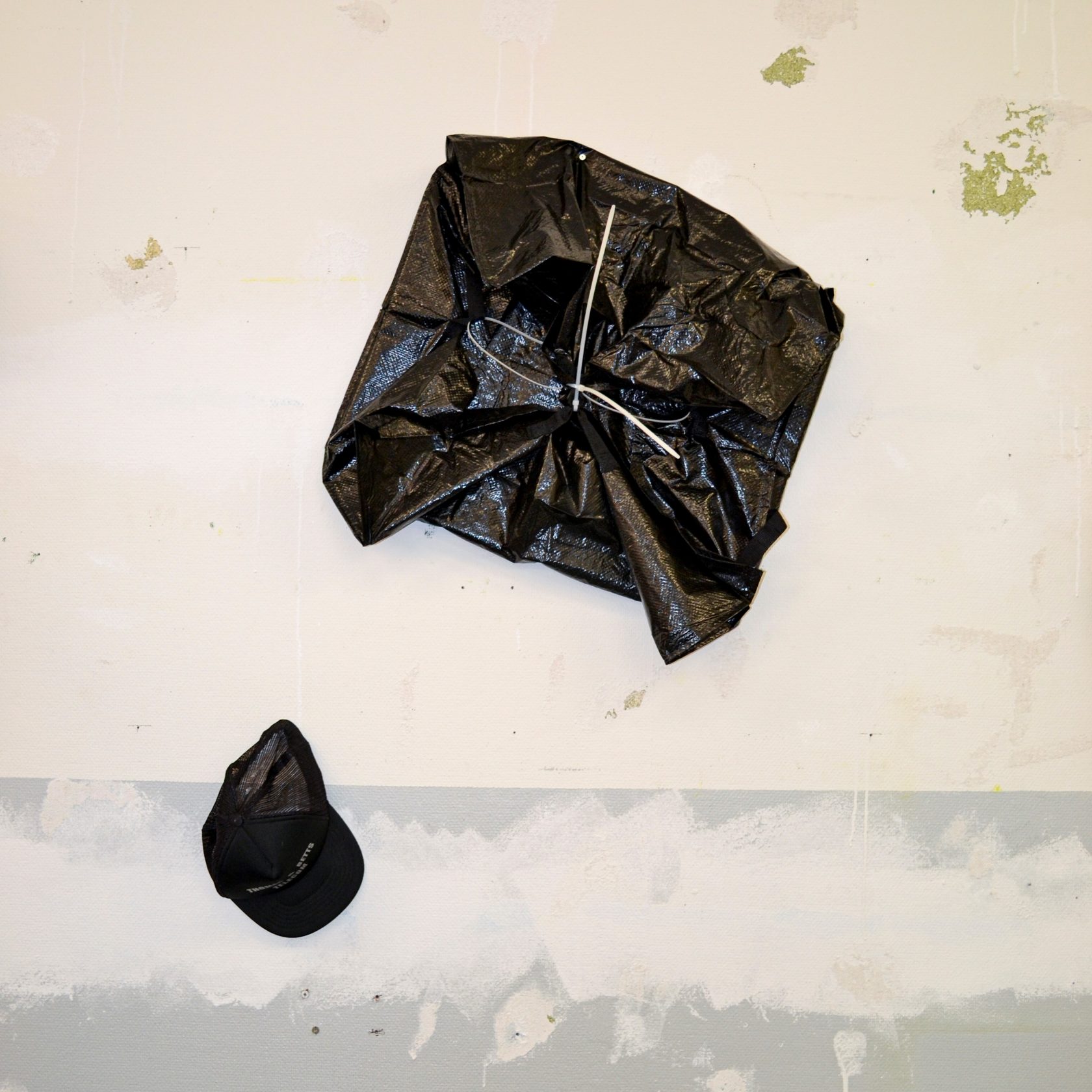
There is always this friction between stability and instability. Knowing what you’re doing, and not knowing at all. Being happy or hating your work. It can make it interesting, but it can also be a burden sometimes.”
O: “It’s all about balance: self balance, not in society, but in myself. I love jiu jitsu because I don’t have to think. While I’m training jiu jitsu, , I don’t have to think about my position in reality.”
MA: I have the same with going to work and cooking. There is no time to think about your artistic practice. It gives you an opportunity to clean the palette.
A clean palette, an empty plate. That will leave us hungry for more.
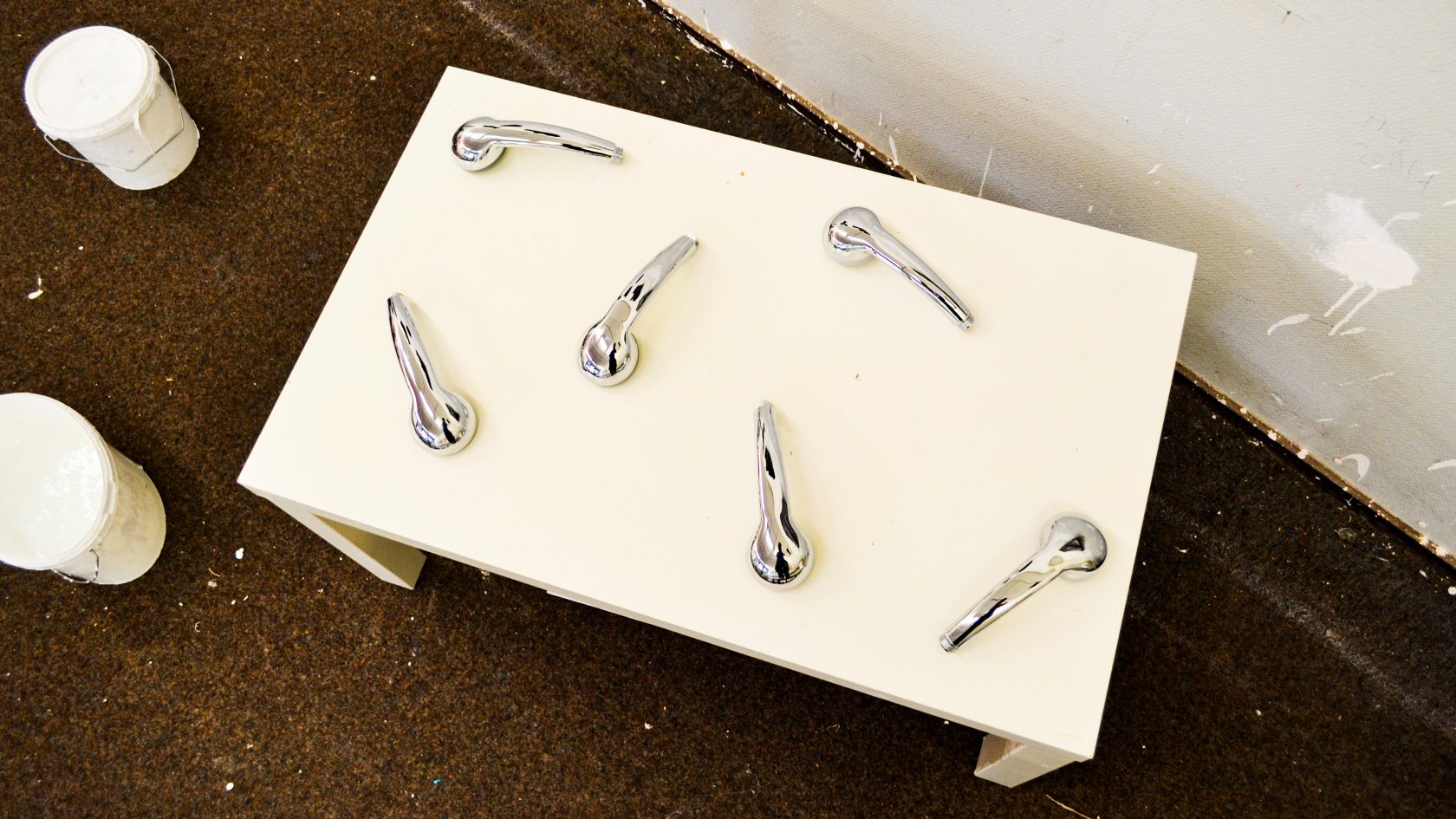
Melle Aussems and Ottokaji will display their graduation works at NP3 Gallery in Groningen.